Did you practice your dancing this week? Because you may find that that deliberate practice and support from a mentor has a lot more to do with your dancing ability than you may think.
From an early age, Wolfgang Mozart received musical instruction from an expert teacher, Leopold Mozart, his father. Leopold was a famous performer and composer in his own right who was also very interested in how music was taught to children. He wrote a book about violin instruction that was influential for decades. He began to teach Wolfgang to play and compose when the little boy was around three years old.
Wolfgang Mozart’s first four piano concertos, composed when he was eleven years old, contained no original music. Mozart put them together out of other composer’s music as most beginning composers do. Mozart’s first masterpiece – Piano Concert No. 9 was composed when he was twenty-one years old. That is an early age to compose such a masterpiece, but by this point Wolfgang had been through eighteen years of extremely diligent training.
And Tiger Woods? From an early age, Tiger Woods received golf instruction from an expert golfer and passionate teacher – his father. Tiger received a golf club at seven months of age. Tiger’s high chair was set up in the garage where Tiger watched his father hit balls into a net for hours on end. Before Tiger was two, he and his father were on the golf course practicing regularly. Tiger Woods has repeatedly credited his father for his success and has written, “Golf for me was an apparent attempt to emulate the person I looked up to more than anyone: my father.” When asked to explain Tiger’s success, both father and son give the same reason: Hard work.
Shizuka Arakawa knows what it means to work hard. Arakawa began training as a skater when she was five years old, and when she was twenty-four years old, she won the gold medal in figure skating at the 2006 Winter Olympics. Winning means performing flawlessly moves that most of us would consider impossible. Practicing jumps that win Olympic gold means falling down – in a thin costume on cold, hard ice – a lot. It is estimated that Arakawa fell down at least twenty thousand times before achieving Gold.
Does this mean that people must have a motivated parent or teacher training them by three or five years old if they are to be good at anything? No! There seems to be a ten year rule that researchers have discovered when they study outstanding performers in all domains. It takes most writers, musicians, dancers and businessmen ten years of diligent study and work before they begin to accomplish what society considers great. Howard Gardner, author of Creating Minds said, “I’ve been struck throughout this study by the operation of the ten-year rule… Should one begin at age four, like Picasso, one can be a master by the teenage years; composers like Stravinsky and dancers like Graham, who did not begin their creative endeavors until later adolescence, did not hit their stride until their late twenties.”
Geoff Colvin ends his book Talent is Overrated by saying, “The evidence offers no easy assurances. It shows that the price of top-level achievement is extraordinarily high. Perhaps it’s inevitable that not many people will choose to pay it. But the evidence shows also that by understanding how a few become great, anyone can become better. Above all, what the evidence shouts most loudly is striking, liberating news: that great performance is not reserved for a preordained few. It is available to you and everyone.” So keep dancing!
Victorian Era Dance Calling, Music, Living History, Special Events, Education and Life
Up-a-do Unlimited Music Patterns
You can play music by just matching colors and letters! It is easy! Find out how at www.UpadoUnlimited.com
Tutoring Services and More!
In addition to dance, there is English, math, science, history and more. And sometimes, you need a little help. For information, go to Up and Over Educational Services.
Host an Event
Dancing at a HIstory Ball


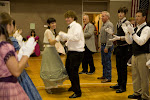

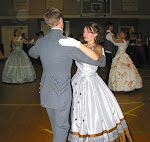
Dancing at a Living History Event



Dancing in Edna Valley

The Newby Family

History Ball
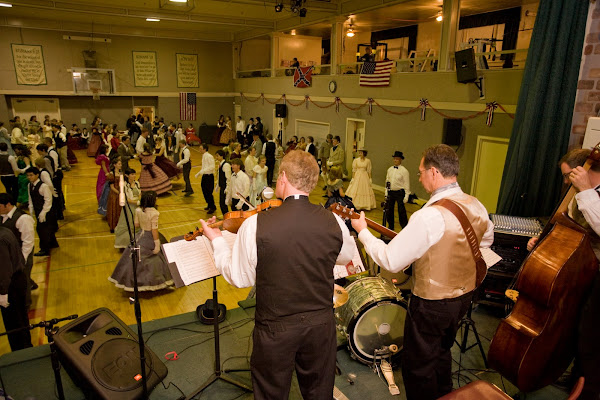
Liberty Hill Players: Kelly Powers, Terry Newby and Kirk MacLane
Dancing The Virginia Reel
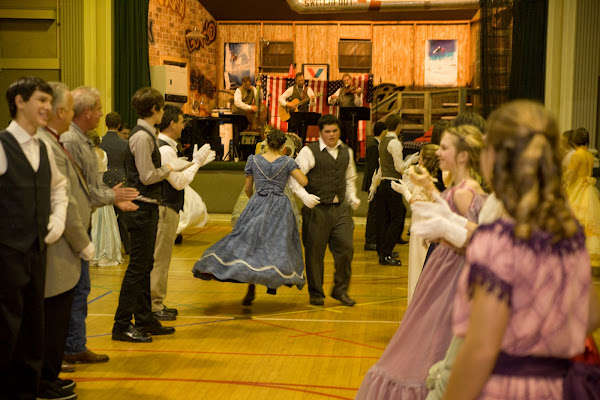
Civil War Ball photos by Dennis Swanson at www.studio101west.com
Fresno Reenactment

Playing period music in camp
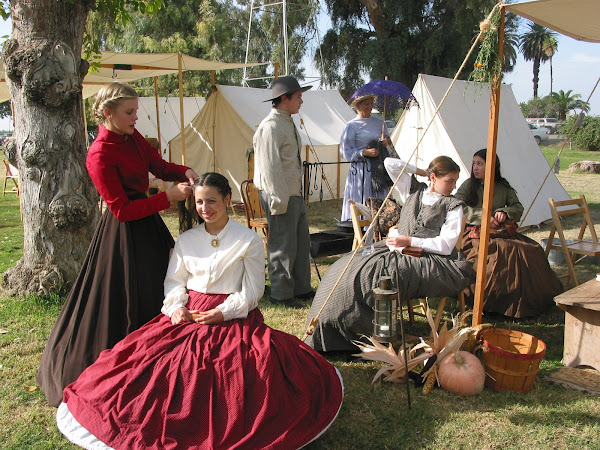
Preparing for the day
Youtube videos of past History Balls
Profile
The first time Debra Newby can remember participating in a group dance was when she learned to square dance during PE in 5th grade… and she was hooked. She continued to dance through Jr. High, college and beyond. During her college years, she worked as a Park and Recreation Leader and taught square dancing to elementary school-aged students. After receiving her degree in zoology and chemistry, she earned her teacher's credential and began teaching science in public high schools. She gave that up to stay home with her three young children and went on to direct choreography and drama for local children’s choirs. She currently enjoys Civil War Reenacting with her family and teaching and calling Victorian Era social group dances for school groups, casual events and Grand Balls.
No comments:
Post a Comment